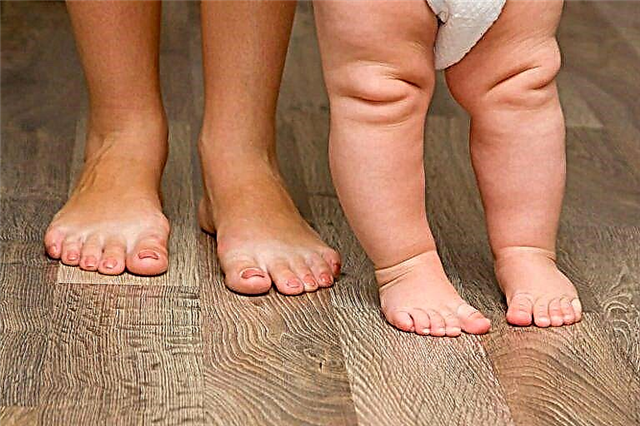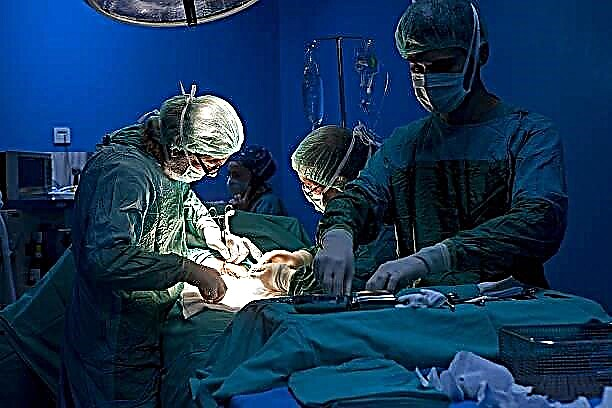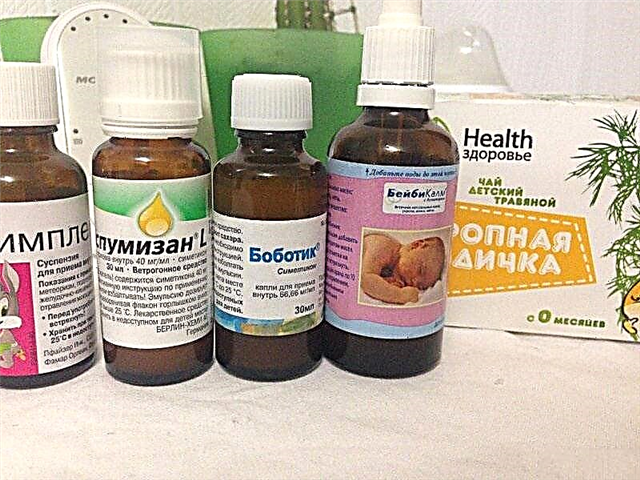
In most babies, the first teeth "hatch" at the age of six to eight months, but occasionally there are situations when a newborn is born with one or more teeth, or the first of them erupts from the baby in the first month of life. What is the reason for this, why can a newly born child have them and what do they do in such a situation?

Kinds
The teeth found in a newborn are called natal, and those teeth that are cut in an infant in the first 30 days after birth are called neonatal. As a rule, their structure is defective, so they are less durable and wear quickly. Among them are:
- Complete. This is the name for the most common baby teeth that appeared in his oral cavity ahead of time. They are more susceptible to diseases and fall out faster (often up to 4 years).
- Spare or additional. These are teeth additionally formed during intrauterine development, represented by the second row of milk teeth. They can fall out in the first months of a baby's life.
Note that in girls, the appearance of natal or neonatal teeth is observed more often than in male infants. Moreover, in 95% of cases of childbirth with them, he has complete teeth and only 5% of babies have spare teeth. In most cases, we are talking about milk incisors.

The most common reasons
The exact reasons why a baby can be born with teeth have not yet been identified, but doctors suggest the influence of such factors:
- Excessive amounts of calcium or vitamin D in the diet of the expectant mother during the period when the tooth buds are laid in the fetus.
- Genetic predisposition. This factor, like excess calcium, is one of the most significant.
- The use of certain medications in the treatment of a pregnant woman.
- Changes in hormonal levels in a woman's body during gestation, as well as endocrine diseases of a pregnant woman.
- The environmental situation.
What to do?
The teeth that appear in the mouth of a newborn, as a rule, cause discomfort both for the child himself (they often injure the bridle) and for the mother (the baby bites the nipples during feeding). The dentist should determine what to do with them after examining the crumbs and conducting an X-ray examination. But due to the difficulties of breastfeeding, the risk of injury to the frenum and underdevelopment, they will in many cases be advised to be removed.
However, if the teeth are complete, many dentists recommend leaving them, since their removal will lead to a situation where the child will not have them until the permanent teeth erupt. This can adversely affect the formation of the jaws and the correct development of the bite. Milk teeth can shift and cause crooked molars. Removal is only recommended in cases where they are loose or broken with a sharp edge.

If they are spare, they should be removed, since such a presence in the oral cavity can interfere with the teething of the child's full milk teeth. In addition, in many cases, such small and rather weak teeth fall out on their own, posing a danger to the life of the baby, because they can suddenly get into the baby's respiratory tract.
After removal, the dentist will regularly examine the toddler in order to monitor the eruption of normal milk teeth and their change to permanent ones. As a rule, babies born with teeth after the appearance of molars are no different from those whose teeth began to cut at six months or later.
Folk omen
People often consider the birth of a child with teeth to be a sign of good health and a happy comfortable life. Rumor calls "toothy" babies strong personalities who will be able to fend for themselves.
However, there is another opinion that promises a child born with teeth in poor health. According to such a sign, the baby's strength "went" into his teeth.
Everyone decides for himself whether to believe him, but, according to doctors, the health of children is more influenced by the presence of teeth, and balanced nutrition, clean air and love of parents.




